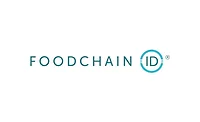BIZTRACKS
FoodChain ID Launches NBFDS Compliance Service

FoodChain ID, a provider of technology-enabled food safety, quality, and sustainability solutions, has launched a bioengineered (BE) compliance service to assist food manufacturers in meeting the U.S. Department of Agriculture (USDA)’s National Bioengineered Food Disclosure Standard (NBFDS)’s upcoming deadline.
The past decade has seen increasing consumer concern regarding the foods they eat. Following in the footsteps of states like Vermont, the federal government has now taken a more assertive approach to meeting public outcry for greater transparency.
In 2016, Congress amended the Agricultural Marketing Act of 1946 with the National Bioengineered Food Disclosure Law. It directed the USDA to establish a standard requiring food manufacturers, importers, and individual retailers to ensure bioengineered foods are appropriately disclosed.
Dubbed the NBFDS, it has a mandatory compliance date of January 1, 2022, which is less than a year away. The 13 currently listed foods at high risk to be bioengineered can be translated into thousands of ingredients and products sourced from numerous global suppliers. Hence, detectability becomes a critical element of determining compliance. The 13 food at high risk include alfalfa, apple (Arctic varieties), canola, corn, cotton, eggplant (Bangladesh Agricultural Research Institute Bacillus thuringiensis Begun varieties), papaya (ringspot virus-resistant varieties), pineapple (pink flesh varieties), potato, salmon (AquAdvantage), soybean, summer squash, and sugar beet.
FoodChain ID found that many companies do not have the internal technical expertise, resources, or time required to do this—particularly in light of the supply chain disruptions caused by the global pandemic. Companies have the opportunity to outsource this effort to an expert, who can help with assessment, documentation, and determining if disclosure Is necessary, or the appropriate compliance pathway to avoid disclosure.
FoodChain ID’s BE compliance service identifies products containing BE ingredients, offers pathways to achieve compliance, and provides recordkeeping and supply chain management using Foodchain ID’s SupplyTrak compliance database.
SupplyTrak is a cloud-based multi-assessment compliance database that maps customer’s supply chains, shares data between programs (Non-GMO Project Verification/USDA Organic/BE Compliance). It enables clients to manage, track, and comply with them all efficiently. It also effectively reduces the time and complexity of the BE evaluation and yearly program renewals.
Looking for quick answers on food safety topics?
Try Ask FSM, our new smart AI search tool.
Ask FSM →
If disclosure is required, FoodChain ID will recommend appropriate disclosure per the requirements of the NBFDS. If a client prefers, FoodChain’s advisory services offers options and perspectives on how to avoid using bioengineered substances.
For more information about Foodchain ID’s NBFDS compliance service, visit https://www.foodchainid.com/nbfds-compliance/.






